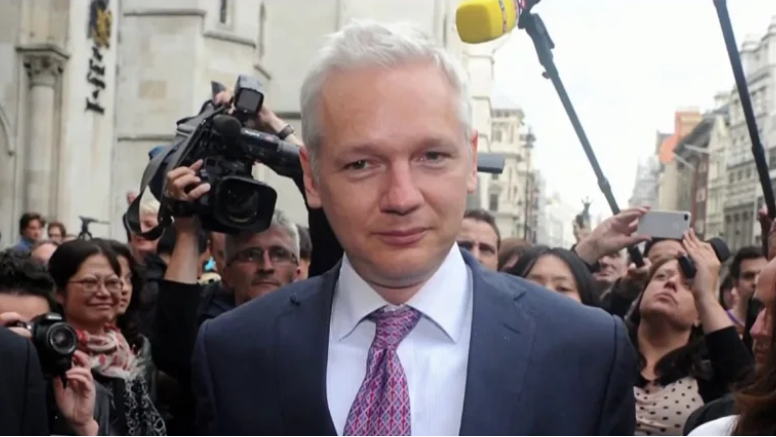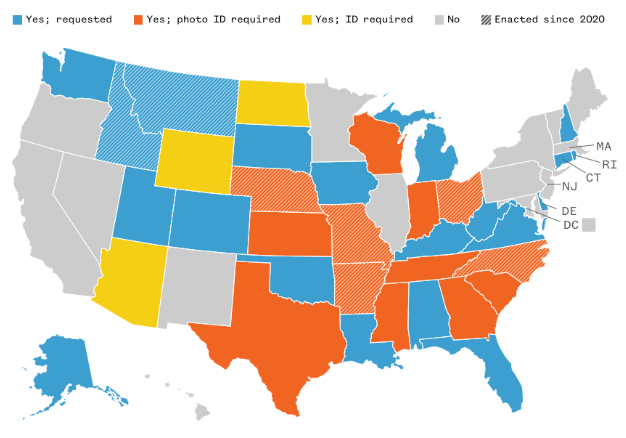Julian Assange, the Australian journalist who published hundreds of thousands of classified documents related to the U.S. wars in Iraq and Afghanistan to Wikileaks, is facing his final appeal against U.S. extradition in London’s High Court. He was indicted by the Eastern District of Virginia under the Espionage Act in 2019. Assange has been held at the high-security Belmarsh prison in London ever since he was expelled from the Ecuadorian embassy in 2019, where he had taken refuge since 2012.
Assange has been made into a martyr for free speech and anti-establishment causes ever since his leaks of classified information in the early 2010s. His publications helped expose the grave reality of the wars in Iraq and Afghanistan which included hundreds of thousands of civilian deaths at the hands of the U.S. military.
Wikileak’s publications of classified information in the early 2010s angered the U.S. government, although the Obama administration refrained from prosecuting Assange and other journalists on the grounds of protecting press freedom and free speech. In 2013 Obama’s administration also decided not to prosecute journalists who covered Edward Snowden’s disclosures of NSA spying.
In the early months of the Trump administration in 2017, Wikileaks published the Vault 7 archive, leaked to them by a CIA hacker named Joshua Schulte, which contained a significant amount of the CIA’s cyberweapons and hacking capabilities. Schulte was sentenced to 40 years in jail for his actions in January. These leaks were seen as severely damaging to the CIA’s ability to collect intelligence. Most of the files leaked from Vault 7 were marked as ‘Top Secret//Norforn’. ‘Top Secret’ is the highest level of classification in the government, and ‘Norforn’ means that no foreign citizen is allowed access to the documents.
The Vault 7 publication prompted the CIA to pursue Wikileaks. In a speech to the CIA upon his appointment as director, Mike Pompeo said “Wikileaks walks like a hostile intelligence service, and talks like a hostile intelligence service.”
According to anonymous sources in the intelligence community who spoke to journalists, the CIA even considered kidnapping or outright assassinating Assange, even though he was inside a foreign embassy. In 2019, the Department of Justice unsealed numerous indictments against Assange under the Espionage Act and the Computer Fraud & Abuse Act. These indictments weren’t related to the Vault 7 publication, but rather the 2010 publications of classified military documents. Mere days after the indictments were unsealed, the Ecuadorian embassy invited the Metropolitan Police of London into the embassy to arrest Assange. Ever since, he has been held at the high-security Belmarsh prison, fighting his extradition to the U.S. in British courts.
The prosecution of Assange has been universally condemned by human rights organizations and press freedom groups. Assange, an Australian citizen, has also enjoyed the support of the Australian government, which has lobbied for his release.
This week, Assange is facing what is to be his final appeal against extradition to the United States. Were the court to approve his extradition, Assange would be effectively all out of options. His extradition would have to take place within 28 days of the decision. His legal team, in that scenario, is planning to contact the European Court of Human Rights. Their hope is that the European Court of Human Rights would invoke a Rule 39 order, an order that protects prosecuted individuals who are at great health risk. Assange has been reported to be in very poor health, according to the UN’s torture representative. Were he to be extradited to the U.S., his trial would be held at the Federal Courthouse in Alexandria.
Assange is the only journalist or publisher to be prosecuted under the Espionage Act, which is unprecedented. The source of the 2010 leaks, Chelsea Manning, who was an army intelligence analyst, served seven years in prison for her crimes. Her sentence was initially 35 years, although Obama commuted it just before leaving office in 2017. If Assange is convicted in the U.S., it would have a chilling effect on investigative journalism. In the U.S., journalists do have a legal precedent to justify publishing classified information. The U.S. Supreme Court ruled in the case of the Pentagon Papers in the early 1970’s that newspapers have the right to publish classified information leaked to them. That decision by the Supreme Court is seen as the signature legal defense for investigative journalism. Press freedom groups argue that a conviction of Assange would undo that precedent.



















